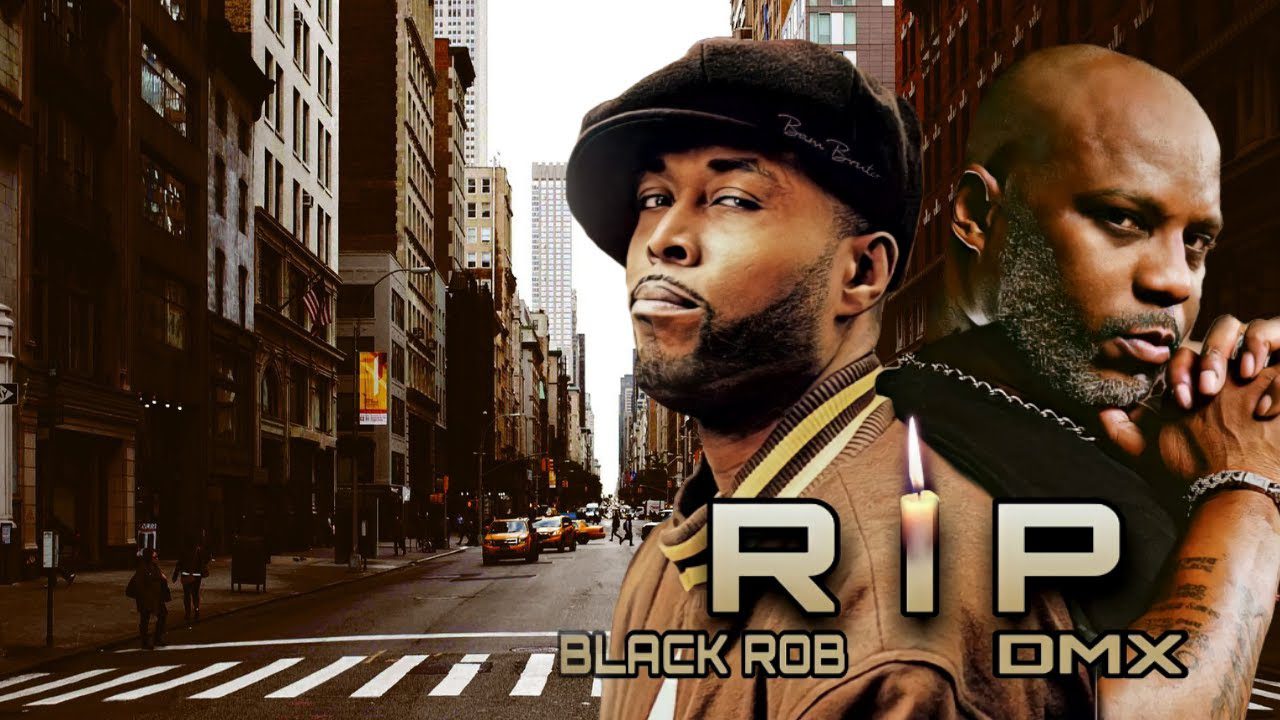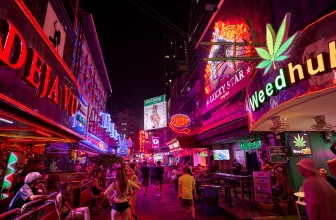
2021 has brought forth the untimely deaths of some of the world’s most beloved artists. Recently the world of Hip Hop was shaken by the deaths of both DMX and Black Rob. Both of these men were rappers in their early 50’s and have both achieved success in their craft. In 1998 DMX released two albums, each one selling platinum. In 2000 Black Rob also experienced platinum success with his debut album Life Story which was released on Sean “Diddy” Combs label Bad Boy Entertainment.
DMX and Black Rob are examples of men who loaned their talents to the music industry and in return got thrusted into a world of bright lights and fame. While DMX’s career may have had a significantly wider reach, both him and Black Rob were loved by their fans. Their styles were both brash, menacing, and at times vulnerable and braggadocious. Both of these men seized their moments in the spotlight and left life too soon. Both of these men battled personal health issues, which most likely could have been preventable.
How DMX got introduced to crack
DMX’s life spiraled into addiction at the tender age of 14. Unbeknownst to him, he was passed a crack-laced blunt by an older member of his community whom he looked up to. DMX thought he was simply smoking marijuana but instead he was given a powerful dose of an extremely addictive narcotic. DMX detailled this story in a recent episode of Talib Kweli’s People’s Party podcast.
Even at the height of his success he was haunted by his own personal demons. His fans knew him as a warrior and a poet and revered him in a manner similar to Tupac, Biggie and Snoop. Fans respected DMX for his realness, his passion and his unwavering alpha male assertiveness.
Black Rob’s career faded out of the limelight shortly after his greatest commercial success. He was best known for his chart topping hit from 2000, “Whoa”. Before his death a GoFundMe page was being circulated to help pay for his medical and housing expenses. The logical questions that arise when one examines the stories of these rappers are; what happened to all the money Black Rob made? Or, why didn’t these record companies help them out more?
The business of entertainment has a history of profiting from the commodification of Black pain and trauma. Black suffering and dysfunction are regularly packaged and sold as consumer goods in the form of films, albums and various media. Ironically, Black art and media are central to what is deemed cool and trendy, especially within youth culture.
The Exploitation of Hip Hop artists in the “attention economy”
We currently live in the era of “the attention economy”. Everything from social media to the various digital media streaming platforms actively compete for your attention. Various online influencers and celebrities are now being called out for “Blackfishing”. This term illustrates the great lengths people will go through to achieve fame by performing Black minstrelsy.
The relationship between the artist and record label is historically abusive and one where the output of Black talent drives corporate interests. Oftentimes Hip Hop artists sign away the rights to their intellectual property for a record deal. This is driven by a powerful desire to escape poverty. Furthermore, many artists operate with a degree of naivety in the presence of the unscrupulous music executives. Most young artists from the hood aren’t familiar with the workings of these types of gangsters. These artists develop a false sense of trust in record labels to have their best interests in account.
Artists are often encouraged and incentivized to uphold destructive messaging in their music. As new artists come into prominence there tends to be an erasure of principles from the past combined with an increase of more extreme shock value within the lyrics. Youth are vulnerable and tend to operate with a level of short-sightedness, so it is imperative that the messaging presented to them is balanced and authentic.
Hip Hop should be used for positive change
I am a child of the Hip Hop culture, born and raised in New York City during the 1980’s and 90’s. The music has always provided a multitude of messaging ranging from Black community empowerment to the tales of nefarious street activities. I’m also a person who seeks to spread a message of health and vitality through balanced living. I walk with the ability to identify aspects of life that are unhealthy and disruptive to my overall sense of wellness.
My love for music, art, film, fashion and food drive a lot of my leisure activities. In the years prior to COVID-19 lockdowns I regularly attended some of my favorite outdoor festivals, concerts and fairs. While I can appreciate the buzz of an outdoor gathering, I am not moved by the lure of junk food. Where some may have nostalgic cravings for cotton candy, funnel cakes and other festival foods and I see nothing but refined fatty oils, white refined sugar, and a variety of other ingredients which cause inflammation.
Hip Hop is like a street fair, but a global one.
Hip Hop is like a street fair, but a global one. It’s a musical genre literally birthed from street culture. It’s vibrant, colorful, dazzling and infectious. So much so that it is a lifestyle. But as Hip Hop continues to mature we have to use discernment and critical thinking as it relates to this music and all manner of things we willingly consume and participate in.
We don’t always make the best choices and unresolved trauma is often at the root of our addictions and destructive behaviors. Addiction can present itself comes in a multitude of forms and it is incumbent upon us to recognize these traits amongst us and our loved ones.
As we enter a new paradigm perhaps Hip Hop can find a means to promote a more health centered way of life. It’s always a struggle for artists to fit in and to not present music that is deemed preachy or corny. The musical component of Hip Hop put a global spotlight on Black artists who emerged from the margins of society. The trauma and suffering that stem from a marginalized existence have spread through the proliferation of Hip Hop.
Some of my favorite moments in this music were educational. Back in 2001 I embarked on a path towards a vegan lifestyle. The revolutionary Hip Hop duo Dead Prez helped influence this lifestyle choice with their classic tune “Be Healthy”. At the time their music offered me critical analysis of Black life in America, while also celebrating and promoting a healthy lifestyle that included marijuana. Needless to say I identified with their music and messaging.
Cannabis like Hip Hop can be abused but must not be
Cannabis when used properly can provide a wellspring of healing. On the other hand marijuana can also be abused and used in a manner that attempts to mask the various emotional pains of life. When life overwhelms us we often seek escape and weed can provide that for better or for worse.
While I don’t believe that cannabis should be criminalized I feel it should be respected and available for its ability to help humanity.
As marijuana continues to be established as big legalized business we should think critically about how we choose to indulge and also establish personal wellness parameters.
The power of Hip Hop and cannabis can promote personal and collective empowerment. We must adopt modernized and useful applications for this art and this plant, should we dare to envision a future that is more whole and humane. Weed and rap represent the connectivity of mankind and mankind’s connection to nature. It’s no coincidence that artists like DMX, Black Rob and scores of their peers could penetrate language and cultural barriers. Hip Hop has people from Tokyo to Tel Aviv wanting to participate in the culture through music, fashion, art and weed.
Rap, much like the internet, is an information superhighway. At times this music and the themes surrounding it could be destructive, degenerative and potentially limiting to the listener. In that past two decades a variety of drugs have gained popularity within the culture. Molly, opiates, cocaine and lean now permeate the expression of contemporary artists. Seemingly it’s only a matter of time before we mourn the death of another one of these musical heroes young or old.
Let’s not let Hip Hop legends like DMX and Black Rob die in vain
Let us not forget the contribution of our musical and cultural titans. Let us all actively seek to make an authentic contribution to bettering our condition. Business models need to be disrupted so they may reflect a level of personal and community accountability. Artists and fans must enact discernment and be willing to critique matters that are detrimental to the longevity and legacy of this culture.
As the world mourns the passing of these artists let us not let their stories be lost in vein. lets continue to celebrate their lives. Let’s also keep in mind that Hip Hop is a revolutionary folk art that is passed from one generation to the next. At its best it can be used to advance the human condition. At its worst it will continue to take advantage of those who disproportionately face poverty, mass incarceration and a litany of health issues.






